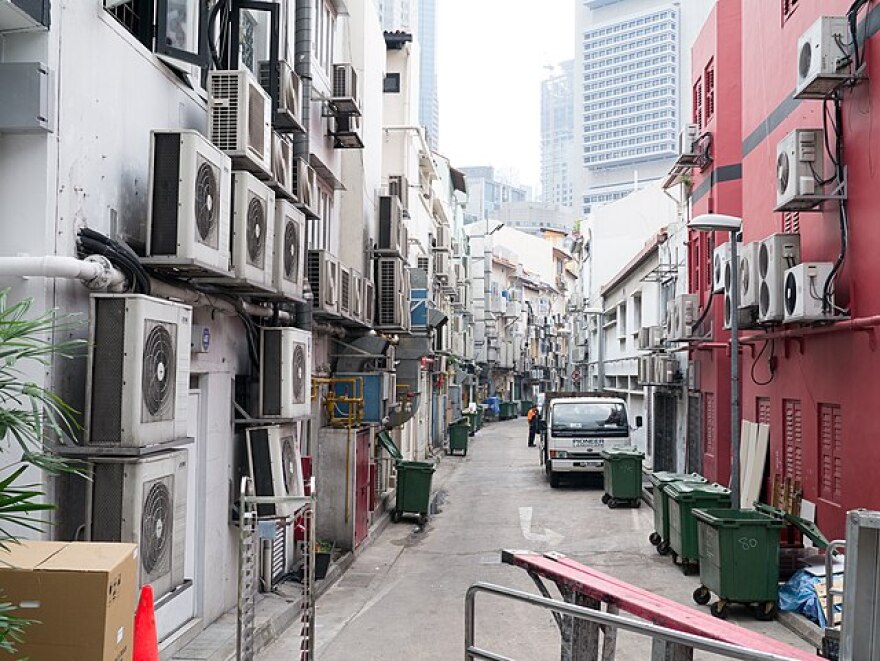A few years ago, I wrote a piece about air conditioning called, “The price of cool.” I wanted to show how wasteful and self-indulgent it was. Our ancestors lived and farmed and fished through the summers for thousands of years without air conditioning. Great empires were gained and lost without air conditioning.
Capitalism, factories, railroads and even democracy were built without air conditioning. Just about all the most important works of art and science and philosophy in the world were created by people who had no air conditioning. In other words we have strong historical evidence that a bit of sweat never did anybody any harm.
Before the magic cooling machine came along in the 1920s summer simply meant making a few adjustments to the heat. Business hours were shorter, and holidays were longer, as were afternoon naps. Congress adjourned during the hot months to the great relief of everyone, and people spent more time outdoors, often sitting on their stoops until late at night, chatting to their neighbors about how hot it was.
Now the stoops are empty and summer heat has gone from being a topic of casual conversation to being a major international news story. In the words of the great economist John Maynard Keynes: “When the facts change, I change my mind.”
The facts have changed, although not everyone is prepared to admit it. Some cultural warriors on the far fringes think they have found a scapegoat in TV weather forecasters who talk too much about global warming. This is rather like accusing doctors of killing their patients by naming their disease. This is an interesting variant on the old superstition that “naming calls,” which holds that not speaking about something you dislike, or fear means that it ceases to exist. This is a new level of censorship that makes reality entirely a matter of personal preference.
In the real world, or large parts of it, air conditioning may become no longer a luxury but a simple matter of survival. We may find ourselves living in sealed bubbles like visitors on an alien planet. It’s already halfway true in hot states like Texas and Arizona. Houston is reputed to be the most air-conditioned city in the world. In such places ordinary fresh air is regarded with about as much enthusiasm as poison gas. For several months of the year citizens live like aliens on their own planet in completely artificial environments, the outside air unbreathable and the heat unbearable. It’s not a happy prospect.
Where the enormous amount of electrical power will come from, I don’t know. What will happen to the poor people left outside the air conditioned bubble I can guess. The price of cool may be higher than we want to pay. If you recently received an electricity bill you know what I mean. The electric meter has been whizzing around like something in the Indianapolis 500. Not many of us, on a really hot day, have the fortitude to flip the thermostat switch to “off.”
And have you ever wondered where all that heat goes? It doesn’t disappear, it just gets moved around. All those trillions of therms that used to be absorbed into the gasping human body are now pumped back out into the atmosphere, as you can feel by putting your hand over your outdoor condenser. Incalculable amounts of heat are being shifted from indoors to outdoors. If they want an explanation of global warming, climate scientists should consider that, even if the implications make them sweat.



